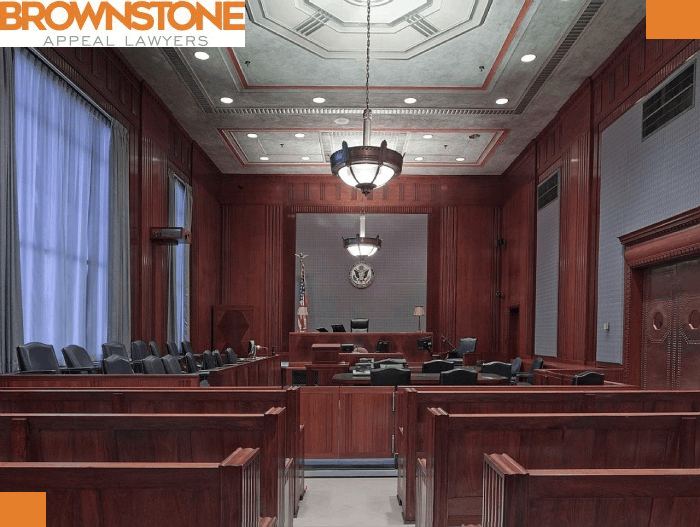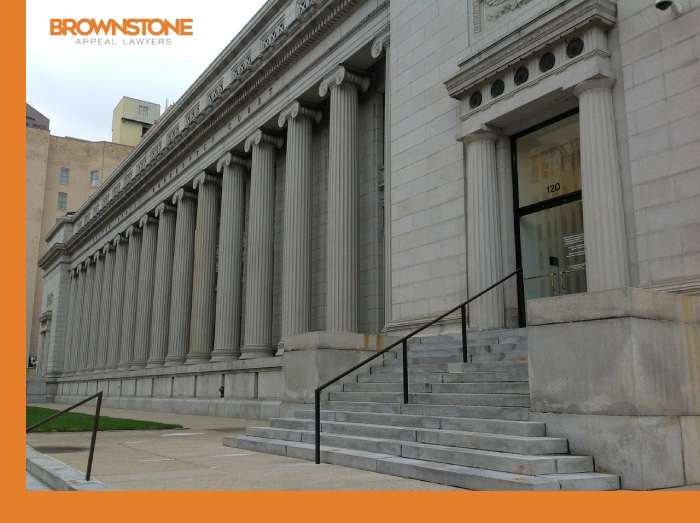Due to the risks presented to human health by gathering in closed quarters during the pandemic, the majority of court cases are being held remotely. Appellate cases are included in the shift to remote meetings, and for individuals who have an appellate court appearance approaching, this change may be stressful.
If you’ve been notified that your appellate case has been shifted to a remote appearance rather than an in-person session, there are several things you’ll want to keep in mind when you’re preparing for your case to be heard by a judge.
Standard Appellate Court Tips
In any instance, when you’re getting ready to attend an appellate court appearance, you’ll want to ensure that you’re fully prepared to state your case when the time comes. Take a look at the following steps to be certain that you’ve got everything you need to make the most of your appeal.
- Be familiar with the law: While your representative will help you when it comes to the more intricate details of the law, it’s a good idea to have a basic understanding of the laws that impact your case.
- Know the functions of appellate courts: Be aware of what the court is designed to do and know the powers it has to make decisions.
- Practice what you’re asking for very carefully: The best way to get what you want out of your case is to be very clear.
- Know the details of your record: By being well aware of your records, you can help prevent any mistakes from being made in the case.
- Do your best to present a strong argument in a frank, collected manner: The more sense you make during your argument, the less likely you are of having to clarify points along the way.
- Be respectful to the judges presiding over your case: One of the best remote appellate argument tips you can follow is to remain respectful and poised. Judges do not appreciate disorderly conduct or disrespect in their sessions. Even if you’re nervous or frustrated, be on your best behavior.
- Try to remain calm: Legal proceedings can be highly stressful, but do your best to remain calm and focused.
COVID-19 Remote Appellate Argument Tips
While you have most likely covered all of the steps you need to prepare for your case, appearing remotely brings about a few added challenges that you’ll need to face. Follow these remote appellate argument tips in order to have your case proceed as smoothly as possible.
#1- Test Your Equipment Ahead of Time
If you’re meeting with the court remotely, one of the most important remote appellate argument tips to follow involves making sure you’re equipment is in working order ahead of time. Don’t wait until the last minute to test your computer, web camera, conferencing applications, or cell/landline phone.
Perform a practice run of your meeting a day before your case is scheduled. If applicable, meet with your legal representative using the same equipment you plan to use during the case in order to be sure you’re able to connect, and that the other party can see and hear you clearly.
Also, it’s worth mentioning in this remote appellate argument tip that many courts have their arguments pre-recorded and available online. Take a look at this website for oral arguments that the U.S. Court of Appeals for the Second Circuit has prepared.
#2- Keep It Brief
Remote appeal cases might proceed more quickly than in-person court sessions. For this reason, it’s important to keep your argument brief. At the start of your argument, it’s a good idea to present the court with an outline so that you can list the main points of your argument. Address the most important points first, because the court will very likely have you under a time constraint.
The point of this remote appellate argument tip is to ensure that you’re able to say everything you absolutely need to say. The judges will likely have questions for you at the end of your argument, and in order to have your case proceed on a good note, you’ll want to ensure that there’s as much time as possible left for you to clarify your points.
#3- Set a Timer
In addition to keeping your argument as brief as you can, it’s also a good idea to keep track of your time limit. During in-person court cases, a light system is used to let individuals involved in the case know how much time they have for arguments. While this is still true for remote cases, you might not be able to see the countdown from your area.
Because of this, a good remote appellate argument tip involves keeping track of time on your own. Try to have an electronic timer available so that you can avoid losing track of time during your argument.
#4- Cover the Most Important Information First
Again, because your time will likely be short when trying to deliver your argument during your appeal, it’s crucial to cover the most important points first. Address the main issues at the beginning of your argument, keeping in mind what sort of questions the judges will most likely ask you afterward.
Once you have your main arguments covered, you can cover additional pieces of information if you have time, and if covering the topics is necessary for your case.
#5- Be Prepared for a Rush
While it’s common for appellate cases to proceed quickly, having your case handled remotely will likely speed up an already fast session. It’s possible that during your remote session, the judges do not have very many questions for you. In fact, due to the logistic challenges of remote sessions, the judges might not have any questions at all.
While it is important to keep your argument brief and cover the important points first, as mentioned above, don’t sell yourself short.
Because this case is likely going to proceed differently than what you can expect to happen in person, one key remote appellate argument tip is to be ready for anything.
While you absolutely should be prepared to present a brief, concise argument, you should also be prepared to deliver your entire argument uninterrupted if the judges do not stop you from speaking after the time limit passes.
Remote appellate court appearances can be a stressful, challenging event, especially when you’re not familiar with remote conferencing. However, by following these remote appellate argument tips, you’re likely going to be able to conduct your argument during your case quite well.
In addition to following the tips listed above, do what you can to talk with your legal representative before the case begins. These individuals are experienced when it comes to participating in remote court cases and they can help you clarify any confusion you may be experiencing.
The post Blog first appeared on .source https://www.brownstonelaw.com/blog/top-5-tips-for-remote-appellate-arguments-during-covid-19/



